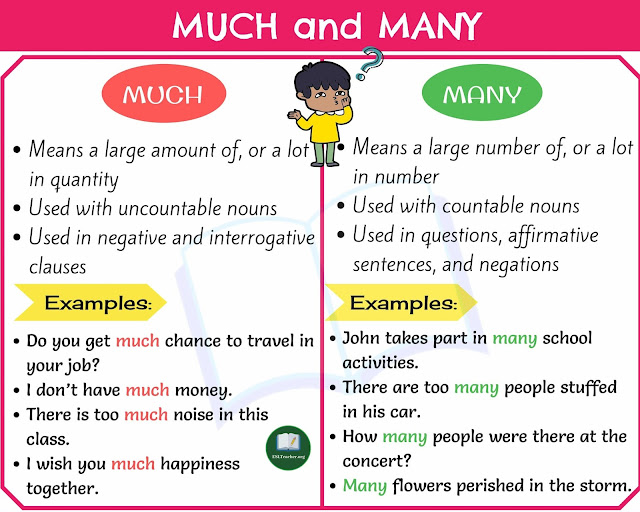SECTION 1 - Explanations
WH Words
COUNTABLE AND UNCOUNTABLE NOUNS
We can count some uncoutable nouns by using these expressions:
PREPOSITIONS
For other type of prepositions and prepositional phrases, see HERE.
More mistakes with prepositions HERE.
SECTION 2 - Practice
Each student is going to practice with the following exercises. Click on the links below to access the content.
WH words: Exercise 1 Exercise 2
Countable/Uncountable nouns: Exercise 1 Exercise 2
Prepositions: Exercise 1 Exercise 2
SECTION 3 - Speaking practice
Students will be divided into small groups and practice speaking by asking some of these questions:
Noun (count / noncount)
2. What kinds of food do you eat regularly?
3. What did you order last time you went to a restaurant?
4. Do you eat any special foods on New Year's Day? If so, what do you eat?
5. What are some of your favorite types of vegetables?
6. What’s your favorite type of meat? Why is it better than other types?
7. What would you like to grow if you had a garden?
8. What types of ingredients go into your favorite dish?
9. What are some unhealthy foods that you love?
10. What spices do you use most when you cook?
11. What do you usually order when you go to your favorite fast food restaurant?
12. What do you eat when you go to watch a movie?
13. Do you prefer eating utensils made from wood, metal, or plastic?
14. What’s your favorite fruit? How much do you usually eat in one sitting?
15. What drink do you like to have with meals?
16. What kind of condiments do you use a lot? What types of food do you put them on?
17. What do you eat when it's cold outside?









